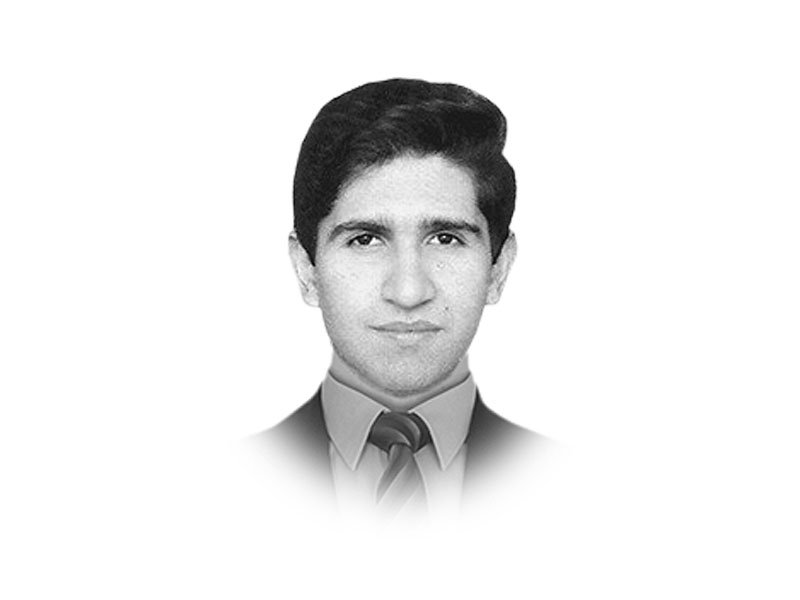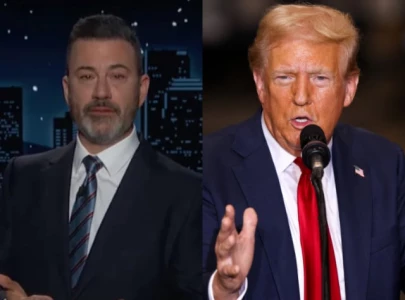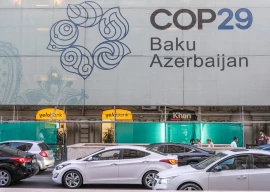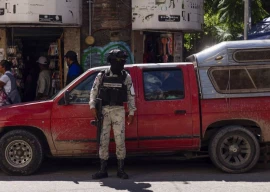
The supremacy of the leadership is a resonation of the colonial past in many Muslim post-colonial countries; since the colonising force was generally a symbiotic entity with the local elite, this elite opted for a favourable compartmentalisation of policy, as against a uniform, national political arena, which would have allowed populist politics to flourish. The unbridled power of monarchy in the Gulf states and tribal chiefs in East Africa and Nigeria, along with feudalism in Pakistan, are an expression of the spectrum of elite, which went along with the centre (a colonial power at one time) in order to negotiate as an entity on behalf of vested groups. When direct rule from the centre was preferred, as in Algeria, the system tended to break down, which espoused the cause of the elite in reaching centre stage in politics in many post-colonial Muslim nation states. As a preferred governance framework, the inherent power relationship structures within colonialism were perpetuated in continuum by this elite, till they met expressions of resentment, most notably by the Islamist movements in these countries.
Delving into the universe of Muslim leadership in the 20th century, a bewildering array of kings, military dictators, mullahs, democrats, tribal men (Taliban) emerges; adding to this motley arraignment of leadership are newly emerging, aggressively literalist Islamist movements, which are expressions of the ultra right or neo left. This has fostered the creation of leaderships that share the same characteristic of having a political agenda of survival or sustaining foisted regimes on a populace; since this is a system of governance imposed by an elite driven by political motives of sustenance of a certain regime or agenda, it can loosely be classified as elitist- political Islamism. The connotations of this type of Islamism is that due to the top-down enforced agendas — whether political or Islamist — reactionary Islamism takes root in society , much of which is due to state policies, whether as a direct or indirect consequence.
The Islamic world has seen many monarchies and military dictators utilising the device of elitist political Islamism; the Saudi regime is an example of the former while General Ziaul Haq in Pakistan symbolised the latter to the hilt. Many Muslim Middle Eastern countries, ranging from Morocco to Iran, are dictatorships, with countries such as Egypt, Iran, Libya, Tunisia, Saudi Arabia and Syria qualifying as ‘not free’ countries, even after variable experiences of the Arab Spring. Even at a cursory glance, the tribal or clannish affiliations of many leaders of these states are obvious. In Saudi Arabia and many Gulf states, the dominant clan became the ruling elite when statehood was achieved, with the masses also arrayed along tribal lineages. It is also pertinent that even when Muslim states in the Far and Middle East, such as Syria and Iraq, were taken over by military dictators, the late Hafez Assad in Syria and Saddam Hussein in Iraq, tended to repose their trust in members of their own tribes and sects. Thus, narrow principles of self-interest prevailed, which would inevitably result in a reaction.
The Islamist perception against the leadership in the Muslim world can aptly be summed up in the words of Muhammad abd-al Salam Faraaj, who was executed on charges of involvement in the assassination of former Egyptian president Anwar Sadat: “The basis of imperialism in the lands of Islam is these self-same rulers … There is no doubt that the first battlefield of the jihad is the extirpation of these infidel leaderships.” This has been more or less a dominant discourse in the Islamist world, though there are many variations to the theme. The discourse from both sides of the fence is, of course, not to be condoned. However, there is a greater need now more than ever in face of such paradigm shifts as the Arab Spring, to try and understand why such leaderships have failed in the Muslim world. Such experiments should not be repeated.
Published in The Express Tribune, January 27th, 2013.
COMMENTS (15)
Comments are moderated and generally will be posted if they are on-topic and not abusive.
For more information, please see our Comments FAQ

1731046534-0/trump-(22)1731046534-0-165x106.webp)


-(14)1720679028-0/(image-blakelively-on-Instagram)-(14)1720679028-0-165x106.webp)












There never was democracy in the Muslim world. Democracy is a import like Playboy.
At the outset one needs to break this myth of Muslim Leaderships (whatever it may mean) as being something very different from other leaderships.
And this can easily be done, if we are willing to make the effort of looking at the available historical evidence.
At the end of the 2nd World War, the old Imperialist order was giving way to a new Nationalist, Socialist political order across Asia, Africa and Latin America.The so called Islamic Lands were also very much a part of this awakening.
As evidence I would cite the leadership of Nasser of Egypt, Sukarno of Indonesia, Mossadegh of Iran and even Jinnah of Pakistan. I would also add the Ba'ath Socialists of Iraq and Khalq and Parcham factions of Afghanistan. All of them were, Nationalist, Socilaist and more or less secular political forces, that grew out of the respective people's struggle against the old imperialist order.Most of them also openly challenged the old order by 'Nationalising' resources such as oil (Iran, Iraq, Libya) or even a medium of transport(the Suez canal)
The ensuing struggle for world domination between the NATO and Warsaw powers derailed this budding leadership.NATO, specially, engineered coups in these lands with the help of obscurantist forces. The socialist,nationalist,secular leadership was persecuted ruthlessly in the name of conatining communism or even Islam. In fact Islam was promoted as a political ideology in order to provide legitimacy to dictators who were rank opportunists and usurpers.
And, please, this undermining of the people's leadership happened not only in Islamic lands but also in other parts of Latin America and Africa.Nicaragua, Brazil,Argentina, Uruguay, Panamall suffered the same fate. Latin America has gradually reclaimed the old political leadership.
It seems that the others have realised that lasting peace can prevail only in a political system that treats all citizens as equal citizens of the state. You just can not claim superiority over others in the name of religion, race or creed and have peace.
The rest of the world, including the earstwhile dictatorships of Latin America and Africa, seem to have learnt this, but 'Muslim Leaderships' seem to believe that they can still get away with privileges for one group of people over others.. The sooner they stop this, the better it would be, for all.
Despite its faults. Western model of liberal democracy based on universal franchise is the ideal and worthy for emulation for all modern countries. By having periodic elections based on universal franchise it gives the citizens the capacity to throw out the incompetent ,corrupt elite periodically and prevents self entrenched ,self entitled elites from consolidation and monopoly of power. Revanchist ideology based on false glorification of the past feudal autocratic societies is no substitution to modern democratic ideals.There seems to be yearning in some of the Islamic countries for return to the ideal of the rule of first 'Rightful" four caliphs not realizing that the rule was based on internal dissensions,assassinations, bitter power struggles and economics of Arab imperialism . As long as societies base their faith on messiahs and strong men to solve problems they are going to fail. Messiahs and populists are no substitution for strength of democratic institutions built over time.
The Muslim mindset is unique. It is confused on just about all matters starting from religion and ending on moral rectitude, to provide leadership in such an environment is a daunting task if not impossible.
In 1808, Spanish peasantry did not choose King Joseph's an independent judiciary, press freedom, abolition of Church privileges and peasants rights to retain their harvests. Joseph was Napoleon’s brother, placed on the Spanish throne by French troops.
They fought against the foreign invader’s ungodly innovations under priests obedience and motivatation. Because ideal constitution did not matter to the Spaniards to better their lives, but the perception about the man behind it.
In today’s made-to-order corrupt democracies (including ours), these perceptions are realities.
Leadership crisis
First of all there is no such thing as a Muslim world. In Pakistan we have several nations who want autonomy (rightly so like Bengal). GCC has six tiny sheikhdoms despite having same culture, religion and language. Except a few countries like Turkey and Iran we deny the local cultures and try to emulate Arabs who treat us worse than animals. Out of about 60 or so Muslim countries there are only a few like Malaysia and finally Turkey where the democracy is not threatened by mullahs and armed forces. Our culture promotes might is right. We hate modernity and true scientific education and love the stories of kings and sheiks. One of the most popular names of baby boys is Osama, which says it all. In Pakistan many including the educated elite blame democracy for all our current problems. It is like blaming Islam for all our problems in Pakistan as we have been Muslims all along before we even tried a few years of democracy.
@Author, I have a very fundamental questions. What's "muslim world"? how is it any different from the rest of the world? and why are Pakistanis more bothered about it than their own crumbling country?
You dear i don't think is a stupid person nor a hypocrite but if you cant speak then plz don't destroy this topic.Islam was destryed by muslims itself and now only the muslim are behind the darkness of islam. Alqaeda Taliban Sepahe Sahaba Lashkare Jhangvi Hizb u Tahirir Alshabab BokoHaram are the example of the Islamic terrorism, now the main and most important point is that who is behind all of this tell the people.......
Religion believes in the leadership of individual( be it monarch, king, caliphate or dictator) as role model and teaches submission ( highlighting the traits and ignoring or deliberate concealing the drawbacks) individualistic (which also denotes group) thought process has the possibility of influenced with the priority of the interests linked with the individual / group. it will give rise to resentment in an open/ global environment which will vary upon the economic/ social discomfort .once this discomfort comes to unbearable point it explodes but .Dominance of religion in society will change the governance by another milder .version by involving more groups. Intolerance in thought divides the society and creates more groups
How is Iran not a "free country", last time they had elections 80% of people turned up!!. Not only that, their supposed adversaries the jews have enjoyed great rights in the country as evidant by representation in parliament, academy of sciences etc...a single synagogue has never been attacked as far as my memeory serves me. In short they've actually thrived(since the islamic revolution) despite international sanctions against them and have become self-sufficient which is a great achievement. These revolutions you see is a result of frustration at western backed dictatorships...it dosen't really matter what ideaology they employ as long as they can get their country back up and running again.
Nice rationale for the Kalifat except the leadership of the Muslim world replaced the Kalifat and now Kalifat is trying to get the leadership back.
It is as simple as that. The Muslim subjects are caught between their loyalty to the religious teachings and to the modern government structure.
The discourse from both sides of the fence is, of course, not to be condoned. Where is the fence? It is between people who want to be accorded the dignity to choose their rulers, and the people who want to impose a system on them. Whether that system draws sustenance from a colonial legacy or military might or anyone's interpretation of the Quran is beside the point. Islam is today only utilized by States and political forces to mould gullible populations to their agenda - the spiritual aspects of the religion have been completely eliminated to create a concept of victimization and exclusion as shared characteristics for the Ummah, regardless of the actual lack of individual liberty and freedom of expression in almost every single Islamic state.
Very informative article from one of the most knowledgeable people in conflict management domain